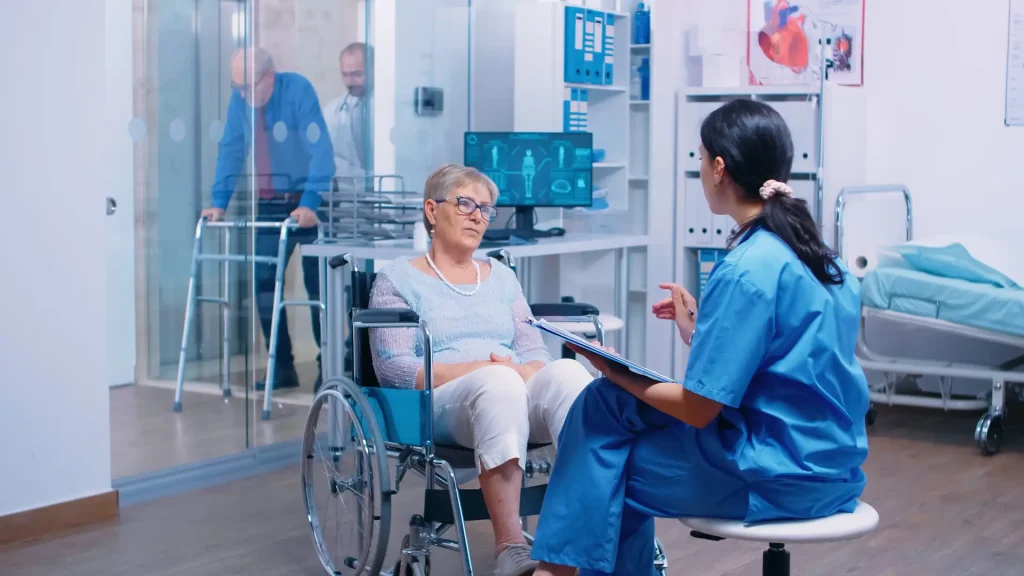Have you ever wondered about the heartbeat of healthcare, the profession that tirelessly tends to the sick, injured, and vulnerable? In the realm of medical care, nursing emerges as a beacon of compassion, responsibility, and continuous support for those in need.
In this exploration, we delve into the multifaceted world of nursing, shedding light on its diverse roles, historical roots, and the vital nursing process.
What is Nursing? A Holistic Approach to Healthcare
Nursing, at its core, is a healthcare discipline dedicated to preventing illness, promoting overall health, and aiding in the recovery and rehabilitation of patients. Whether in long-term care facilities, physician’s offices, or hospitals, nurses play a pivotal role in patient care journeys.
Unlike other healthcare professionals, patients frequently interact with nurses, emphasizing their crucial position in the healthcare ecosystem.
Process of Guiding Patient Care in Nursing
The nursing process, a systematic and holistic approach, encompasses key stages that guide patient care:
Assessing: Gathering crucial information about patients through systematic methods, nurses delve into medical history, observe symptoms, and assess demeanor to determine current conditions.
Diagnosing: Collaborating with advanced practice nurses and physicians, nurses contribute valuable information to the diagnostic process, ensuring a comprehensive understanding of the patient’s health.
Planning for Outcomes: In collaboration with healthcare professionals, nurses create realistic treatment plans, establishing both short-term and long-term goals tailored to the unique needs of each patient.
Implementing Treatment Plans: Nurses take an active role in patient recovery by executing treatment plans, providing care, and educating patients on their journey to better health.
Evaluating Progress: Continuous assessment of the patient’s progress ensures that recovery is on track, with nurses recommending adjustments to treatment plans as necessary.
Diverse Nursing Duties
The role of a nurse spans a broad spectrum of duties, reflecting the comprehensive nature of patient care. From administering direct patient care to collaborating with medical professionals and ensuring hazard-free environments, nurses contribute significantly to the well-being of those under their care.

Examples include educating patients on medical conditions, offering emotional support, conducting medical tests, and emphasizing the importance of healthy lifestyle habits.
The Evolution of Nursing
Nursing, a profession deeply rooted in history, has undergone a remarkable evolution from its foundational days with Florence Nightingale to the contemporary era of specialized roles.
This transformative journey reflects not only advancements in medical knowledge and technology but also the dynamic adaptation of nursing to meet the ever-changing needs of healthcare.
Florence Nightingale and the Birth of Modern Nursing
Florence Nightingale, hailed as the pioneer of modern nursing, laid the groundwork for the profession in the mid-19th century. Her emphasis on sanitation, hygiene, and compassionate care during the Crimean War became the cornerstone of nursing principles.
Nightingale’s dedication and visionary approach set a standard that would shape the trajectory of nursing for generations to come.
The 20th Century: Nursing Professionalization and Education
As the 20th century unfolded, nursing witnessed significant strides in professionalization and education. Formalized nursing education programs were established, leading to the development of registered nurses and licensed practical nurses.
The profession increasingly gained recognition for its vital role in patient care, and nurses became integral members of healthcare teams.
Specialization Emerges: Nurse Practitioners and Clinical Specialists
In response to the expanding complexity of healthcare, the mid-20th century saw the rise of specialized nursing roles. Nurse practitioners emerged, blending clinical expertise with a holistic approach to patient care.
Clinical nurse specialists also became prominent, focusing on specific patient populations or medical specialties. These roles brought a new level of expertise and contributed to improved patient outcomes.
Advancements in Technology: Nursing Informatics and Telehealth
The latter part of the 20th century and the early 21st century witnessed the integration of technology into nursing practice. Nursing informatics emerged as a specialized field, emphasizing the use of data and technology to enhance patient care, streamline processes, and improve healthcare outcomes.
Additionally, the advent of telehealth expanded the reach of nursing, enabling virtual consultations and remote patient monitoring.
Diversification of Nursing Roles: Nurse Anesthetists, Nurse Midwives, and More
Nursing continued to diversify with the introduction of roles such as nurse anesthetists, nurse midwives, and nurse educators. These specialized positions showcased the versatility of nursing expertise across various healthcare settings, ensuring a comprehensive approach to patient care from conception to end of life.
Contemporary Nursing: Global Health and Public Health Advocacy
In the 21st century, nurses have increasingly become advocates for global and public health. Beyond traditional clinical roles, nurses contribute to policymaking, community health initiatives, and disaster response. Their impact extends beyond hospital walls, influencing health outcomes on a broader scale.
Exploring Nursing Roles: A Glimpse into the Diversity of Careers
Today, the field of nursing boasts a rich tapestry of roles, each contributing uniquely to patient care.

Let’s explore eight examples of nursing roles, providing a glimpse into the diversity of careers and the average annual salaries associated with each:
Registered Nurse Case Manager
National average salary: $71,235 per year
Primary duties: Designing and implementing patient care treatment plans, and collaborating closely with patients to educate them on treatment options.
Clinical Nurse Educator
National average salary: $93,417 per year
Primary duties: Teaching nursing students essential clinical duties, designing lesson plans, and demonstrating specific techniques.
Home Health Registered Nurse
National average salary: $97,543 per year
Primary duties: Providing individualized treatments and care to patients at home, assisting with personal needs, and administering necessary medical procedures.
Intensive Care Unit (ICU) Nurse
National average salary: $131,096 per year
Primary duties: Caring for critically ill or injured patients in the ICU, providing emotional support to patients’ families, and coordinating post-recovery plans.
Chief Nursing Officer
National average salary: $137,782 per year
Primary duties: Assuming a leadership role in medical facilities, supporting other nurses, creating work schedules, and devising strategies to enhance nursing performance.
Telemetry Nurse
National average salary: $142,617 per year
Primary duties: Working with patients requiring high-level monitoring, specializing in areas like neonatal or cardiac nursing, and ensuring patients’ conditions remain stable.

Operating Room Registered Nurse
National average salary: $158,341 per year
Primary duties: Assisting with surgeries, ensuring surgical areas are sterile, and providing specialized care in operating room settings.
Nurse Anesthetist
National average salary: $202,337 per year
Primary duties: Administering anesthesia to patients undergoing surgery, ensuring patient comfort, and reviewing allergies before procedures.
Conclusion
In conclusion, nursing emerges as the heartbeat of healthcare—a profession that weaves a tapestry of care, compassion, and expertise. From the historical legacy of Florence Nightingale to the specialized roles of today, nursing continues to evolve, meeting the dynamic needs of diverse patient populations.
As we appreciate the crucial role of nurses, we recognize their unwavering dedication to healing, comfort, and the overall well-being of those under their care. In essence, nursing goes beyond its basic meaning. It embodies a commitment to humanity, making it an indispensable pillar of the healthcare ecosystem.

Leave a Reply